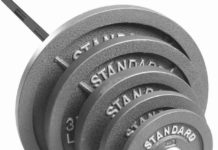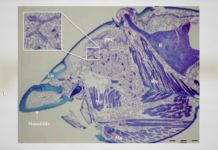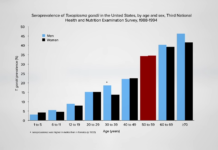Introduction: Caffeine & Health Risks
Most people have become used to having caffeine as part of their daily routine, but with that come risks to health. Too much caffeine can lead to poor cardiovascular health, headaches, and insomnia.
The aim of this guide is to discuss the many health benefits of caffeine-free energy drinks, which have become increasingly popular for those seeking an alternative to their standard daily cup of coffee or energy drinks.
We'll look at the various types of caffeine-free drinks available and what to consider when selecting one. We'll also compare the benefits versus any potential negatives that need to be aware of.
Health Benefits of Caffeine-Free Drinks
Swapping out a caffeinated energy drink for one that is caffeine free can come with a whole slew of benefits. Not only can you avoid the jitters and crash which sometimes comes with caffeine, but you can also reap the rewards from the other ingredients often found in these drinks.
Caffeine-free energy drinks typically contain minerals, vitamins, herbal extracts and other natural ingredients which have various benefits. For example, some contain B-vitamins which can help boost energy, increase mental alertness, and reduce fatigue. In addition, many contain electrolytes which help to hydrate the body and maintain fluid balance.
Additionally, there are several other benefits to choosing to consume beverages without caffeine. Using caffeine-free energy drinks could reduce the risk of addiction as they do not contain any addictive substances, plus they are low on calories so can contribute to weight loss.
- No jitters or crash
- Boost energy and increase mental alertness
- Reduce fatigue
- Contain minerals, vitamins, herbal extracts and other natural ingredients
- Reduce the risk of addiction
- Low on calories
Recommended Caffeine-Free Energy Drinks
If you're looking for a healthier alternative to caffeinated energy drinks, there are plenty of caffeine-free options available. There are various types of energy drinks in the market such as natural energy drinks, carbonated drinks, and vegan energy drinks. The convenience of these energy drinks comes from their easy availability in supermarkets and online stores.
Below is a list of recommended caffeine-free energy drinks that you could consider:
- Gatorade Zero – An electrolyte replacement drink that provides hydration and has zero calories
- Monster Zero Ultra – A sugar-free energy drink that includes B-Vitamins to help improve mental alertness
- Red Bull Sugar Free – A sugar-free version of the popular energy drink
- TigerNuts Raw Energy Drink – An organic energy drink made from tiger nuts and other natural ingredients
- Rockstar Pure Zero – A zero-sugar energy drink with zero calories and zero carbs
- AMP Energy Zero – An energy drink with zero calories and zero sugar
What to Consider When Choosing a Caffeine-Free Drink
When selecting a caffeine-free energy drink, there are a few important things to consider. Not all caffeine-free drinks are created equal and it is important to do your research when choosing the best option for you. Here are some of the key points to keep in mind when shopping around for a caffeine-free energy drink:
- Ingredients: Make sure to read the label and research the ingredients used in the product, such as sugar content, vitamins, natural additive etc.
- Nutrition: Check the nutritional information and see if the drink is providing the necessary vitamins and minerals for a healthy lifestyle.
- Flavour: Choose something you know you will enjoy and make sure to look at reviews from other customers to get an idea of what the taste experience is like.
- Price: Consider the price tag to find the best value for money.
Benefits vs. Negative Effects
When considering switching to a caffeine-free energy drink, it is important to weigh the potential benefits and side effects of the decision. Caffeine-free energy drinks are known to provide several health benefits while reducing the risk of consuming too much caffeine.
On the positive side, caffeine-free energy drinks can offer sustained energy levels while avoiding the jittery feeling associated with traditional energy drinks. These drinks also provide hydration and electrolytes for those who want to reduce their caffeine consumption. Additionally, they typically contain no sugar or artificial sweeteners, making them an ideal option for individuals watching their calorie intake.
However, caffeine-free energy drinks may not give athletes the same boost in performance as their caffeinated counterparts. They may provide an energy boost, but the effects may not be as substantial. Furthermore, some of the ingredients found in these drinks, such as taurine and guarana, may have side effects if consumed in large amounts, so it’s important to read the labels and monitor your intake.
Understanding the Ingredients
Caffeine-free energy drinks are a great alternative to traditional caffeinated energy drinks. But it’s important to understand the ingredients in these drinks before making a purchase. Knowing the ingredients in caffeine-free energy drinks will help you make an informed decision about which product is best for your body.
Most caffeine-free energy drinks contain some combination of B vitamins, electrolytes, and amino acids, which can provide a boost of energy without the typical crash that comes with the high levels of caffeine in traditional energy drinks.
B vitamins are essential for managing energy levels, as they help convert the carbohydrates you consume into fuel. However, it is important to note that not all B vitamin supplements are created equal, so it is important to read the labels to determine the quantity and quality of B vitamins contained in a drink.
Electrolytes are also important for energy levels, as they help maintain the levels of fluids in the body, and aid in nerve and muscle activity. Common electrolytes found in caffeine-free energy drinks include sodium, potassium, and magnesium.
Finally, some caffeine-free energy drinks contain a blend of amino acids, which helps to build and maintain muscle mass. This can help improve endurance and overall performance. Common amino acids found in energy drinks include L-Carnitine, Taurine, and Creatine.
With this knowledge in mind, consider the ingredients of any caffeine-free energy drinks you try. Doing so will help you determine whether or not the beverage is right for you.
Leading a Happy and Healthy Caffeine-Free Life
Caffeine has become such an integral part of our day-to-day lives that it may be hard to imagine life without it. Despite this, many people have made the switch to caffeine-free energy drinks and in doing so, have seen great improvements in their overall health. Through this guide, we’ve explored how caffeine-free energy drinks can benefit you and what to look for when selecting a drink.
Switching to a caffeine-free lifestyle looks different for everyone. For some, it could mean cutting back on caffeine bit by bit or replacing it with naturally caffeinated alternatives. Ultimately, the key to a successful transition is to find what works for you!
The following are a few additional tips to help you lead a happy and healthy caffeine-free life:
- Drink plenty of water throughout the day.
- Eat nutritious food and focus on consuming slow-release carbohydrates like oats, quinoa, and brown rice.
- Take time to meditate or do activities you enjoy.
- Avoid sugary snacks and processed foods.
- Make sure to get enough quality sleep.
By following the above tips and investing in yourself, you will be well on your way to leading a healthier caffeine-free lifestyle!
How Caffeine-Free Drinks Can Support Performance
Many athletes have determined that caffeine-free energy drinks can help improve their performance and endurance. Caffeine-free energy drinks provide essential electrolytes and carbohydrates, which can help increase energy levels without the jitters and crash associated with caffeine.
The electrolytes in caffeine-free energy drinks are also important for maintaining hydration during exercise; this is especially true for athletes who engage in intense physical activities, such as running or weightlifting. Electrolytes help to replace the minerals lost through sweat, allowing athletes to remain energized for longer periods of time.
Caffeine-free energy drinks also contain carbohydrates, which can give an energy boost without increasing heart rate or blood pressure, unlike caffeinated beverages. The carbohydrates in caffeine-free energy drinks are broken down into glucose, which is then used by the body and muscles for energy.
These energy drinks can be very beneficial for athletes when combined with a healthy diet and exercise regime. As they provide the body with essential nutrients and electrolytes, they help to fuel workouts and performance without the risk of dehydration or relying solely on caffeine.
Busting the Myths Around Caffeine-Free Drinks
There are a lot of myths surrounding caffeine-free energy drinks that may lead some people to believe that these beverages are not as effective as their caffeinated counterparts. However, this couldn't be further from the truth. Contrary to popular belief, caffeine-free energy drinks can be just as effective in providing a burst of energy and increased alertness.
Some of the most common myths include:
- Caffeine-free energy drinks do not contain enough nutrients and vitamins to provide adequate energy.
- Caffeine-free energy drinks do not taste as good as their caffeinated counterparts.
- Caffeine-free energy drinks will not provide the same amount of energy as regular energy drinks.
These myths are easily debunked. To begin with, caffeine-free energy drinks are filled with essential vitamins and minerals that are essential for providing a steady stream of energy. Additionally, due to the fact that they do not contain any artificial sweeteners, caffeine-free energy drinks can actually have a better flavor than regular energy drinks.
Finally, caffeine-free energy drinks can provide a similar amount of energy as caffeinated drinks. The energy is just manifested differently. Instead of a quick rush of caffeine, the vitamins and minerals found in caffeine-free energy drinks can provide a slow, sustained release of energy that can help you stay energized for longer.
Caffeine-Free Alternatives to Energy Drinks
Many people worry about the health risks associated with caffeine consumption, but don't want to miss out on a pick me up. Fortunately, there are now a wide range of caffeine-free alternatives to energy drinks that can help get you through your day. These drinks provide an invigorating boost of energy without the potential health risks associated with caffeine.
These alternatives to energy drinks include:
- Herbal teas – such as chamomile and peppermint tea, which are known for their soothing effects.
- Fruit juice – natural fruit juices provide an added boost of energy without the added sugar or caffeine.
- Smoothies – homemade smoothies made with fresh fruits and vegetables provide many of the same benefits as sugary energy drinks, but without the calories.
- Sports drinks – these drinks provide a great source of electrolytes that can replenish your body after a long workout.
Caffeine-free alternatives to energy drinks are not only healthier than traditional energy drinks, they are also more affordable. So next time you're feeling tired and looking for a pick me up, try one of these natural energy boosters instead.
Case Studies: Replacing Caffeine With Caffeine-Free Drinks
It can be difficult to imagine replacing caffeinated drinks with caffeine-free alternatives, especially when we’ve become so used to the routine of drinking them for energy. Fortunately, there are people out there who have managed to make the transition and shared their success stories. We will look at a few of these case studies to better understand what it takes to switch to a caffeine-free lifestyle.
For example, Linda is a high school student who used to rely on coffee every morning to jumpstart her day. She would have one or two cups of coffee every morning, depending on how much energy she needed for the day. After learning about the health risks associated with caffeine consumption, she decided to switch to caffeine-free energy drinks instead. After a few weeks, she found that she was able to sustain her energy levels throughout the day just as well with the caffeine-free drinks as she could with coffee.
Similarly, Michael is an avid runner and used energy drinks with caffeine to help him with his morning runs. He switched to caffeine-free alternatives and was surprised to find that they gave him just as much energy as the caffeinated ones. He was also pleased to learn that he could cut down on some sugar and calories from his diet by swapping his regular energy drink for one without caffeine.
These examples show that it is possible to make the switch to caffeine-free energy drinks without sacrificing your energy levels. With a bit of patience and dedication, anyone can find the right caffeine-free alternative that works for them.
End Notes
At the conclusion of this guide, we'd like to provide some additional resources and references for those interested in learning more about the health benefits and potential risks associated with consuming caffeine-free energy drinks.
Below are some of our recommended articles:
- Health Benefits of Caffeine-Free Drinks – example.com
- What To Look For In A Caffeine-Free Drink – example.com
- The Pros and Cons of Caffeine-Free Energy Drinks – example.com
- Caffeine-Free Alternatives To Energy Drinks – example.com
We hope these resources prove to be helpful in your own journey to living a caffeine-free life. Thank you for reading!
“
















